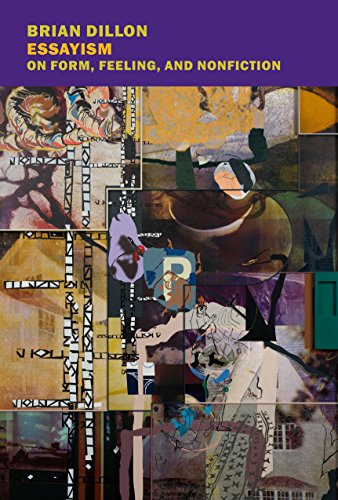New York Review Books
Essayism: On Form, Feeling, and Nonfiction
Regular price
$17.95 USD
Regular price
Sale price
$17.95 USD
Unit price
per
Shipping calculated at checkout.
Couldn't load pickup availability
Title: Essayism: On Form, Feeling, and Nonfiction
Author: Dillon, Brian
ISBN: 9781681372822
Publisher: New York Review Books
Published: 2018
Binding: Quality
Language: English
Condition: New
Essays 1209896
Publisher Description:
A compelling ode to the essay form and the great essaysists themselves, from Montaigne to Woolf to Sontag. Essayism is a book about essays and essayists, a study of melancholy and depression, a love letter to belle-lettrists, and an account of the indispensable lifelines of reading and writing. Brian Dillon's style incorporates diverse features of the essay. By turns agglomerative, associative, digressive, curious, passionate, and dispassionate, his is a branching book of possibilities, seeking consolation and direction from Michel de Montaigne, Virginia Woolf, Roland Barthes, Theodor Adorno, Walter Benjamin, Georges Perec, Elizabeth Hardwick, and Susan Sontag, to name just a few of his influences. Whether he is writing on origins, aphorisms, coherence, vulnerability, anxiety, or a number of other subjects, his command of language, his erudition, and his own personal history serve not so much to illuminate or magnify the subject as to discover it anew through a kaleidoscopic alignment of attention, thought, and feeling, a dazzling and momentary suspension of disparate elements, again and again.
Author: Dillon, Brian
ISBN: 9781681372822
Publisher: New York Review Books
Published: 2018
Binding: Quality
Language: English
Condition: New
Essays 1209896
Publisher Description:
A compelling ode to the essay form and the great essaysists themselves, from Montaigne to Woolf to Sontag. Essayism is a book about essays and essayists, a study of melancholy and depression, a love letter to belle-lettrists, and an account of the indispensable lifelines of reading and writing. Brian Dillon's style incorporates diverse features of the essay. By turns agglomerative, associative, digressive, curious, passionate, and dispassionate, his is a branching book of possibilities, seeking consolation and direction from Michel de Montaigne, Virginia Woolf, Roland Barthes, Theodor Adorno, Walter Benjamin, Georges Perec, Elizabeth Hardwick, and Susan Sontag, to name just a few of his influences. Whether he is writing on origins, aphorisms, coherence, vulnerability, anxiety, or a number of other subjects, his command of language, his erudition, and his own personal history serve not so much to illuminate or magnify the subject as to discover it anew through a kaleidoscopic alignment of attention, thought, and feeling, a dazzling and momentary suspension of disparate elements, again and again.

